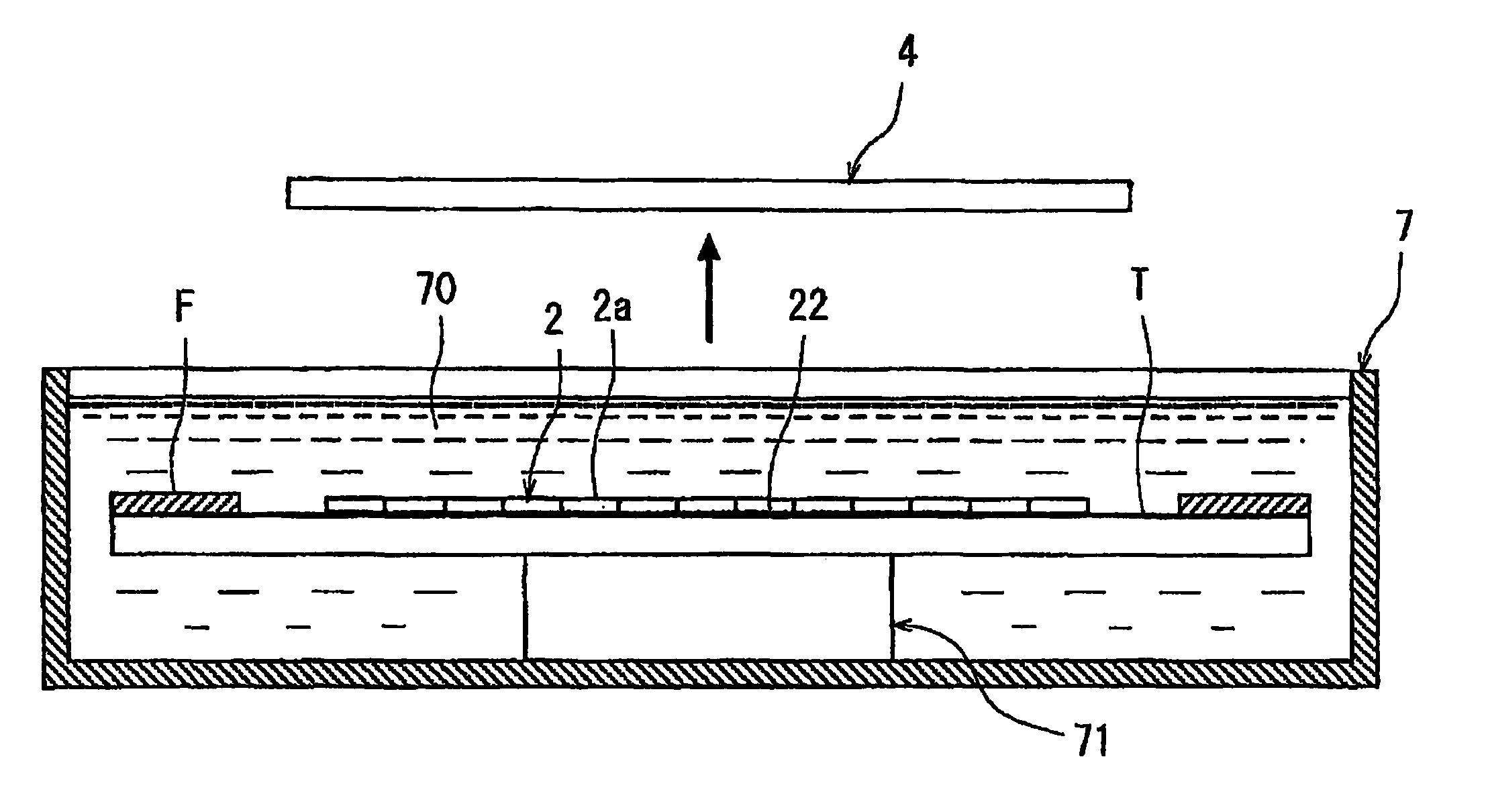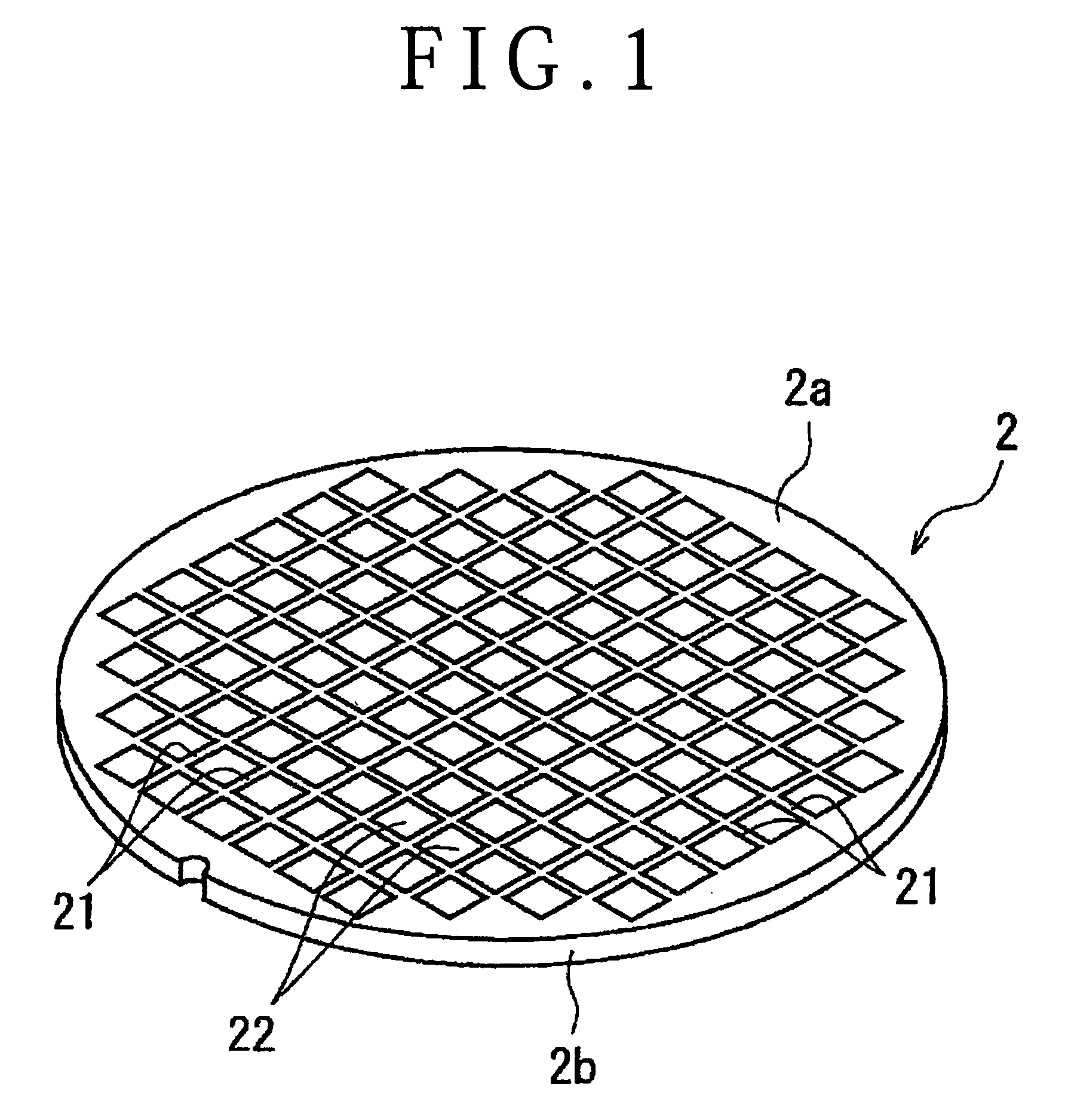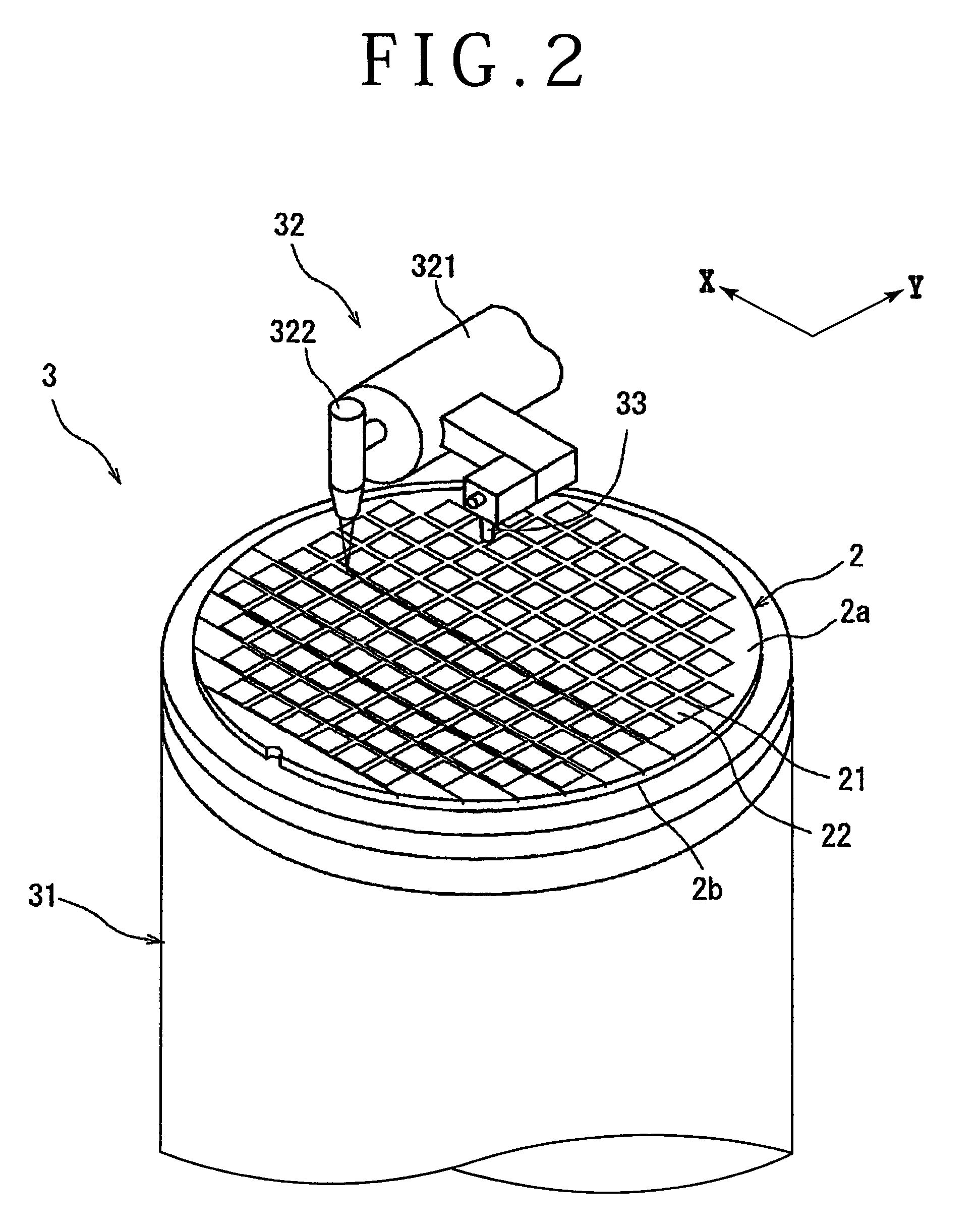Wafer processing method
a processing method and wafer technology, applied in the field of wafer processing method, can solve the problems of inability to accurately divide the wafer along the streets, the focal point of the laser beam cannot be set at a proper position, and the wafer cannot be warped, so as to prevent the occurrence of chipping on the wafer, reduce the thickness, and increase the holding force of the adhesive resin for attaching the wafer to the rigid plate
- Summary
- Abstract
- Description
- Claims
- Application Information
AI Technical Summary
Benefits of technology
Problems solved by technology
Method used
Image
Examples
Embodiment Construction
[0029]A preferred embodiment of the wafer processing method according to the present invention will now be described in detail with reference to the attached drawings. FIG. 1 is a perspective view of an optical device wafer 2 as a wafer. The optical device wafer 2 shown in FIG. 1 is formed from a sapphire wafer having a thickness of 600 μm, for example. The optical device wafer 2 has a front side 2a and a back side 2b. A plurality of crossing streets 21 are formed on the front side 2a of the optical device wafer 2 to thereby partition a plurality of rectangular regions where a plurality of optical devices 22 such as light emitting diodes and laser diodes are respectively formed. These optical devices 22 are formed by laminating gallium nitride compound semiconductors or the like. There will now be described a wafer processing method for dividing the optical device wafer 2 into the individual optical devices 22 along the streets 21.
[0030]In the wafer processing method according to th...
PUM
| Property | Measurement | Unit |
|---|---|---|
| depth | aaaaa | aaaaa |
| depth | aaaaa | aaaaa |
| width | aaaaa | aaaaa |
Abstract
Description
Claims
Application Information
 Login to View More
Login to View More - R&D
- Intellectual Property
- Life Sciences
- Materials
- Tech Scout
- Unparalleled Data Quality
- Higher Quality Content
- 60% Fewer Hallucinations
Browse by: Latest US Patents, China's latest patents, Technical Efficacy Thesaurus, Application Domain, Technology Topic, Popular Technical Reports.
© 2025 PatSnap. All rights reserved.Legal|Privacy policy|Modern Slavery Act Transparency Statement|Sitemap|About US| Contact US: help@patsnap.com



